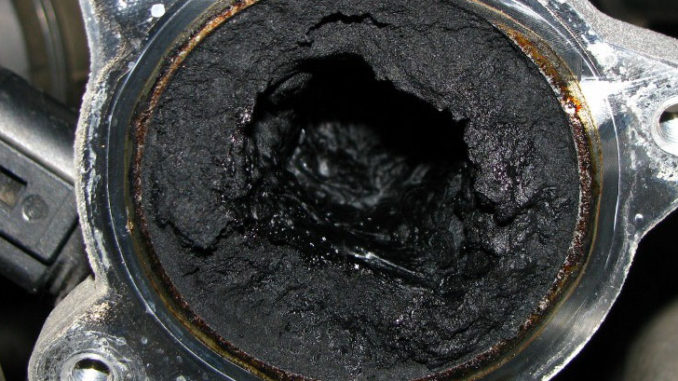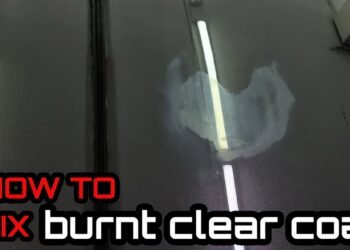Have you ever noticed a knocking sound coming from your engine and wondered, “Could a bad coil be the cause?” That irritating knock isn’t just a random noise—it could be a warning sign your ignition coil is failing. When your coil doesn’t deliver the right spark, your engine misfires, and those unburned fuel pockets can ignite at the wrong time, causing that unmistakable knocking or pinging sound.
Ignoring this could lead to bigger, costlier problems down the road. You’ll learn exactly how a bad coil causes knocking, what signs to watch for, and the simple steps you can take to diagnose and fix the issue before it damages your engine.
Keep reading to protect your car and your peace of mind.
Bad Coil And Engine Knock
A bad ignition coil can cause engine knocking sounds. This happens because the coil is essential for sparking the fuel-air mix. When it fails, the engine may misfire and run roughly.
Unburned fuel can build up in the cylinder due to a weak or missing spark. This fuel ignites at the wrong time, causing the knocking or pinging noise. Such sounds can signal engine problems needing quick attention.
How Ignition Coils Work
Ignition coils create high voltage from the battery’s low voltage. This spark ignites the fuel-air mixture inside the engine cylinders. Each cylinder has its own coil or shares one in some designs.
The coil converts electrical energy to a spark strong enough for combustion. Proper coil function ensures smooth engine running and good fuel efficiency. A failing coil reduces spark strength or stops it completely.
Link Between Coils And Engine Noise
A bad coil causes misfires by failing to ignite fuel properly. Misfires lead to rough engine operation and strange noises like knocking. The knocking happens when unburned fuel ignites late or unevenly.
This knocking can sound like pinging or tapping from the engine. It may get worse during acceleration or under load. Checking ignition coils is important if you hear such noises.

Credit: www.reddit.com
Causes Of Knocking From Bad Coils
Bad ignition coils can cause knocking in your engine. This happens because the coil fails to deliver the right spark at the right time. Without a proper spark, the engine misfires. Misfires lead to several problems that cause knocking sounds.
Understanding the causes helps spot the issue early. Below are key reasons why bad coils cause knocking.
Engine Misfires Explained
Ignition coils create sparks to ignite the fuel-air mix inside cylinders. A bad coil cannot produce a strong spark. Sometimes, it produces no spark at all. This failure causes the cylinder to misfire. When a cylinder misfires, the engine runs roughly and unevenly. The uneven burning creates knocking noises.
Unburned Fuel Effects
Misfires leave unburned fuel inside the cylinder. This fuel can build up over time. The unburned fuel may ignite late or explode suddenly. This causes a knocking or pinging sound. The knocking can damage engine parts if not fixed quickly.
Incorrect Ignition Timing
Bad coils affect spark timing. Sparks may fire too early or too late. Incorrect timing causes fuel to burn unevenly. This uneven burn creates pressure spikes inside the cylinder. The spikes cause the engine to knock.
Exhaust System Backfires
Unburned fuel can escape into the exhaust system. There, it ignites suddenly, causing loud bangs. These backfires can sound like knocking. Exhaust backfires stress the exhaust components and can lead to damage.
Signs Of Faulty Ignition Coils
Faulty ignition coils cause engine problems that affect performance. Recognizing signs of bad ignition coils helps prevent serious damage. Early detection saves money and keeps the engine running smoothly. Here are common signs to watch for.
Rough Engine Running
A failing ignition coil often causes rough engine running. The engine may feel shaky or uneven during idle. This happens because the spark needed to ignite fuel is weak or missing. Rough running reduces fuel efficiency and engine power.
Coughing And Sputtering
The engine may cough or sputter under load or acceleration. This is a sign of incomplete combustion caused by a bad coil. Misfires make the engine struggle, producing jerky movements and hesitation. These symptoms get worse as the coil deteriorates.
Loud Knocking Or Pinging Sounds
Knocking or pinging noises come from incorrect ignition timing or misfires. A bad coil can cause fuel to ignite too early or unevenly. This creates sharp, loud sounds from inside the engine. Ignoring knocking can lead to costly engine damage.

Credit: www.youtube.com
Diagnosing Coil-related Knocking
Diagnosing coil-related knocking is essential for maintaining engine health. A bad ignition coil can cause misfires, leading to knocking sounds. Detecting the root cause quickly prevents further engine damage. Focus on key areas to identify coil issues accurately.
Inspecting Coils And Spark Plugs
Start by examining the ignition coils for visible damage. Look for cracks, burns, or carbon tracking on the coil surface. Check spark plugs for wear, fouling, or incorrect gaps. Worn or damaged plugs can mimic coil problems and cause knocking. Replace faulty plugs to rule them out.
Checking Electrical Connections
Inspect the electrical connectors attached to the ignition coils. Loose or corroded connections reduce spark strength. Clean terminals and tighten connectors to ensure good contact. Poor connections may cause intermittent misfires and knocking noises. Secure wiring harnesses to avoid vibration damage.
Using Diagnostic Tools
Use an OBD-II scanner to read error codes from the engine control unit. Codes like P0300 to P0308 indicate misfires in specific cylinders. A scan tool can monitor real-time data such as ignition coil voltage and misfire counts. Advanced tools help pinpoint bad coils quickly and accurately.
Fixing Knocking Caused By Bad Coils
Fixing knocking caused by bad ignition coils requires careful attention to the engine components. Knocking or pinging noises often point to ignition issues that disrupt the combustion process. Proper repairs restore smooth engine operation and prevent further damage.
Addressing the root cause of the knocking is essential. This involves replacing faulty parts and securing all connections. Small fixes can stop the knocking and improve engine performance quickly.
Replacing Ignition Coils
Ignition coils create the spark needed to ignite the fuel-air mix. A bad coil can cause weak or no spark, leading to misfires and knocking. Replacing faulty coils with new ones solves this problem. Always use coils that match your vehicle’s specifications. This ensures the engine runs smoothly and quietly again.
Replacing Spark Plugs
Worn or damaged spark plugs also cause misfires and knocking. They work closely with ignition coils to start combustion. Replace old spark plugs with new ones of the correct type and gap size. This helps maintain a strong spark and prevents knocking noises.
Tightening And Securing Connections
Loose or corroded electrical connections can cause coil failure. Check all coil wiring and connectors carefully. Tighten any loose connections and clean off corrosion. Secure connections ensure proper spark delivery and reduce engine knocking risks.
Preventing Future Coil Issues
Preventing future coil issues is essential to avoid engine knocking and costly repairs. Taking simple steps helps keep ignition coils healthy. This improves engine performance and extends coil life.
Regular Maintenance Tips
Check ignition coils regularly for cracks or damage. Replace spark plugs on schedule to reduce coil strain. Keep coil connections clean and tight to ensure good spark delivery. Avoid moisture build-up around coils by sealing engine covers well. Use quality parts that match your vehicle’s specifications. Regular inspections catch problems early before knocking starts.
When To Replace All Coils
Replace all coils if multiple misfires occur across cylinders. If coils show wear or cracks, changing all prevents future issues. Replace coils after a long period or high mileage to maintain performance. Consistent knocking or rough idling signals coil replacement is needed. Changing all coils at once ensures balanced engine firing and smooth running.
Avoiding Engine Damage
Do not ignore knocking sounds or misfire symptoms. Driving with bad coils causes unburned fuel to damage pistons and valves. Regularly servicing ignition components protects the engine’s internal parts. Immediate coil replacement stops knocking from harming engine health. Healthy coils keep combustion smooth and engine parts safe.
When To Seek Expert Help
Knowing when to seek expert help is crucial for vehicle safety. Knocking sounds can signal serious issues. Early intervention can prevent costly repairs. Understanding the signs that need professional attention protects your engine and wallet.
Persistent Knocking Symptoms
Knocking noises that do not go away need expert evaluation. Continuous engine knock may damage internal parts. Temporary fixes might hide deeper problems. A professional mechanic can identify the real cause quickly.
Complex Diagnosis Needs
Bad ignition coils can cause knocking, but other issues may also be involved. Diagnosing engine knock requires special tools and experience. Experts use scanners and tests to pinpoint faults. This ensures the right repair and avoids guesswork.
Professional Repair Options
Experts can replace faulty coils and fix ignition systems properly. They check related components like spark plugs and wiring. Professional repair restores engine performance and reduces knocking. Trusted mechanics offer reliable solutions and warranty on work.

Credit: www.loyalparts.com
Frequently Asked Questions
Can A Bad Ignition Coil Cause A Knocking Noise?
Yes, a bad ignition coil can cause knocking noise by triggering engine misfires. Misfires lead to rough running and unburned fuel igniting improperly, creating knocking or pinging sounds. Check and replace faulty coils promptly to avoid engine damage and restore smooth performance.
What Does A Bad Ignition Coil Sound Like?
A bad ignition coil often causes engine misfires, leading to knocking, sputtering, or tapping sounds. These noises indicate rough running.
What Is The Most Common Cause Of Engine Knock?
The most common cause of engine knock is premature fuel ignition in the cylinder, often due to low-octane fuel or incorrect timing.
How Does A Car Act When The Coil Is Going Bad?
A bad coil causes engine misfires, rough idling, and reduced power. It may trigger knocking, sputtering, or backfiring sounds.
Can A Bad Coil Cause Engine Knocking?
Yes, a bad ignition coil can cause engine knocking by leading to misfires and rough running.
Conclusion
Bad ignition coils can cause engine knocking due to misfires. Misfires lead to unburned fuel igniting at the wrong time. This causes the familiar knocking or pinging sound. Check coils and spark plugs regularly for damage or wear. Secure all coil connections to avoid loose wiring issues.
Fixing these problems quickly prevents more serious engine damage. Replacing bad coils often stops the knocking noise. Keep your engine running smoothly by addressing coil issues early.

















